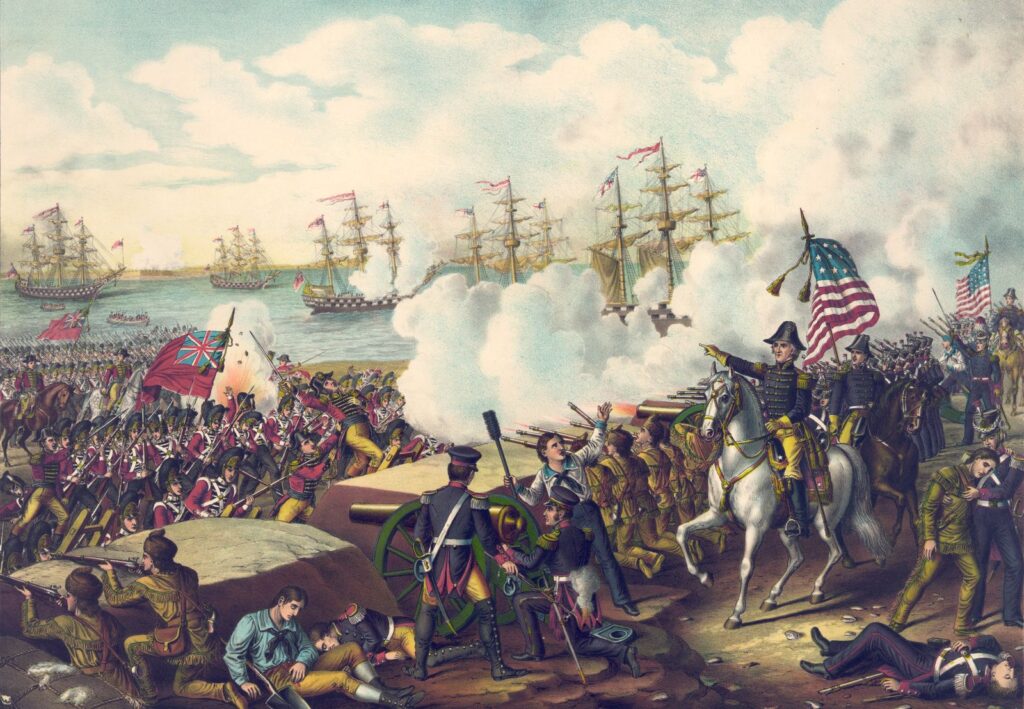In the annals of history, a conflict often overshadowed by the thunder of more renowned wars yet pivotal in shaping the destiny of nations, unfolds a tale of valor, sacrifice, and triumph.As the War of 1812 erupted like a tempest, two formidable forces clashed on the vast stage of North America, their clash reverberating across oceans and etching an enduring legacy on the tapestry of time.
– The Causes of the War of 1812: A Deeper Look
The Causes of the War of 1812: A Deeper Look
The War of 1812 frequently enough gets reduced to a series of grievances between the United States and Great Britain, but the truth is more complex. While the impressment of American sailors and the British support of Native American resistance in the West certainly played their part, a host of other factors contributed to the outbreak of war:
Unresolved tensions over trade and commercial disputes lingered since the Revolutionary War.
The British blockade of French ports during the Napoleonic Wars hindered American trade with France and other European countries.
Manifest destiny, driven by young Western politicians like Henry Clay and John C. Calhoun, pushed the United States to expand its territory and assert its influence on the continent.
Underlying cultural and ideological differences between the young American republic and the British monarchy fueled mutual animosity and suspicion.
By understanding thes deeper causes, we gain a more nuanced picture of the factors that led to this pivotal conflict in American history.
– The Battles of the War of 1812: A Tactical Analysis
Tactical Innovations
The War of 1812 saw the introduction of several tactical innovations that would later become commonplace in warfare. Among them were:
The use of light infantry: Light infantry units, composed of skirmishers and riflemen, were deployed in advance of the main force to engage the enemy with long-range fire and provide early warning of their movements.
The advancement of new artillery tactics: The introduction of new artillery pieces, such as the horse artillery, allowed for more mobile and effective use of artillery in the field.
* The use of rockets: Rockets were used for the first time in warfare during the War of 1812, primarily by the British. They were not particularly accurate,but their psychological impact could be significant.
These innovations, along with the lessons learned from the war, would shape the tactics and strategies of warfare for decades to come.
– The Consequences of the War of 1812: Shaping a New Nation
Long-Term Impacts
The War of 1812 had profound consequences that echoed through American history. It ushered in an era of nationalism and westward expansion, as the young republic asserted its independence on the global stage. The conflict also strengthened the federal government, paving the way for a more centralized and powerful United States. Moreover, the war’s legacy extended to the development of American identity, as the nation emerged from the conflict with a renewed sense of its own destiny. This formative experience would continue to shape the course of American history for generations to come.
– Recommendations for Preserving the Legacy of the War of 1812
Preserving the Legacy
We propose the establishment of a national trust fund dedicated to the preservation and commemoration of War of 1812 sites and artifacts. This fund would provide grants to local historical societies, museums, and other organizations for projects such as:
Restoring and maintaining historic battlefields, fortifications, and other sites associated with the war
Acquiring and preserving artifacts related to the war
Developing educational programs and exhibits about the war
Conducting research on the war and its legacy
The Conclusion
As the dust settled on the battlefields, a new chapter dawned—one marked by both resilience and reconciliation. The War of 1812 left behind an indomitable spirit and a legacy that shaped the destiny of two nations.Though the battles may have ceased, its echoes continue to resonate, reminding us that unity can emerge from conflict, and that even amidst the trials of warfare, the human spirit prevails.

